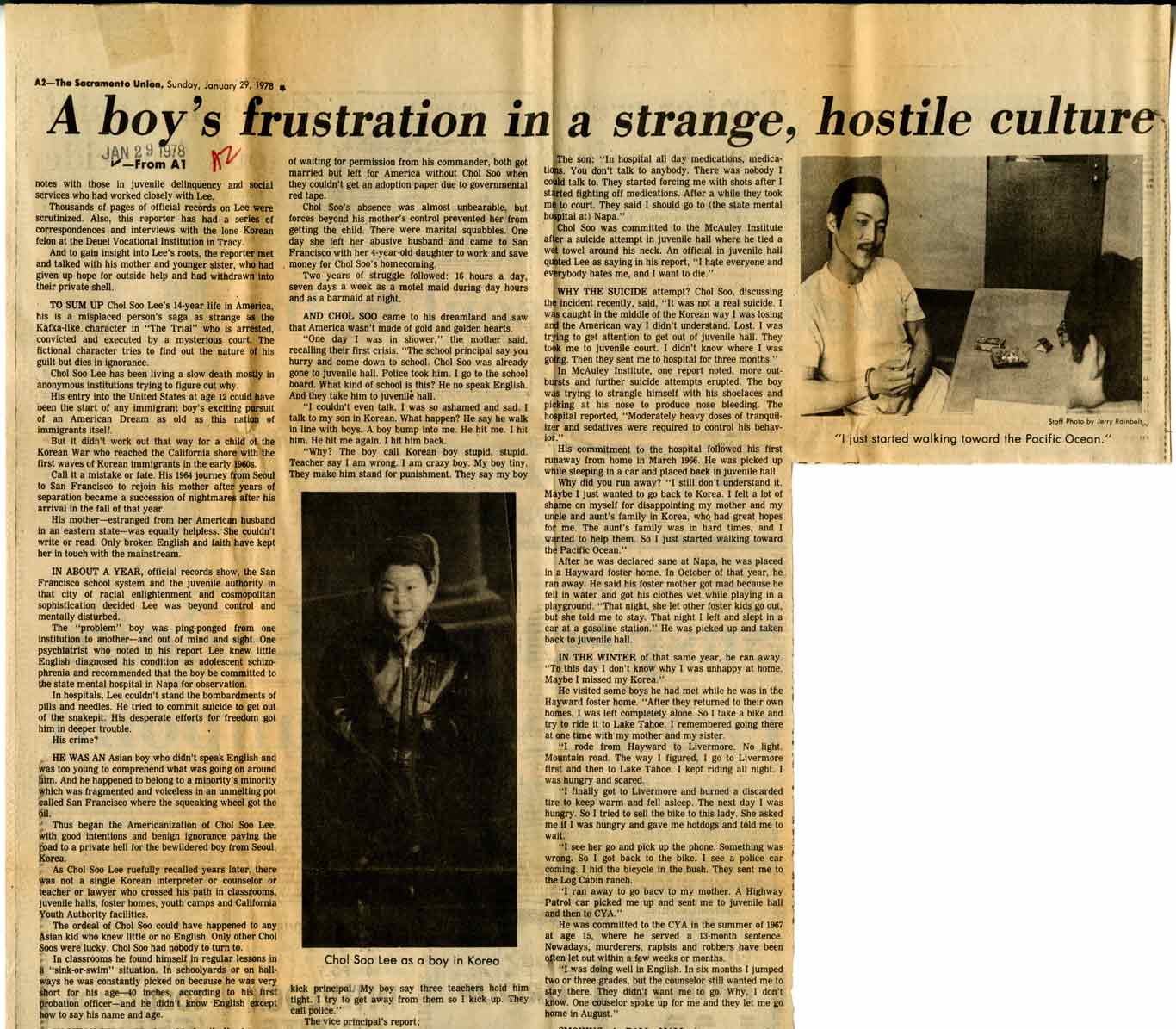TEXT
A boys frustration in strange
Object ID
44.03.08
Multimedia details
Creator
Sacramento Union
Publisher
The Sacramento Union
Date
January 29, 1978
Location
Sacramento, California
Language
eng
Type
Text
Format
Article
File Format
jpg
Subject
Newspapers; Self-portraits; Culture; Immigration;
Source
UC Davis Shields Library/Sacramento Union Archive
Credit Line
Courtesy of Sacramento Union Archive, UC Davis Shields Library.
Licensor
UC Davis
MUMI Number
44.03.TXT.026
Creator
Sacramento Union
Publisher
The Sacramento Union
Date
January 29, 1978
Location
Sacramento, California
Language
eng
Type
Text
Format
Article
File Format
jpg
Subject
Newspapers; Self-portraits; Culture; Immigration;
Source
UC Davis Shields Library/Sacramento Union Archive
Credit Line
Courtesy of Sacramento Union Archive, UC Davis Shields Library.
Licensor
UC Davis
MUMI Number
44.03.TXT.026
In Copyright
This Item is protected by copyright and/or related rights. You are free to use this Item in any way that is permitted by the copyright and related rights legislation that applies to your use. For other uses you need to obtain permission from the rights-holder(s).
NOTICES
- Unless expressly stated otherwise, the organization that has made this Item available makes no warranties about the Item and cannot guarantee the accuracy of this Rights Statement. You are responsible for your own use.
- You may find additional information about the copyright status of the Item on the website of the organization that has made the Item available.
- You may need to obtain other permissions for your intended use. For example, other rights such as publicity, privacy or moral rights may limit how you may use the material.
URI for this statement: http://rightsstatements.org/vocab/InC/1.0/








